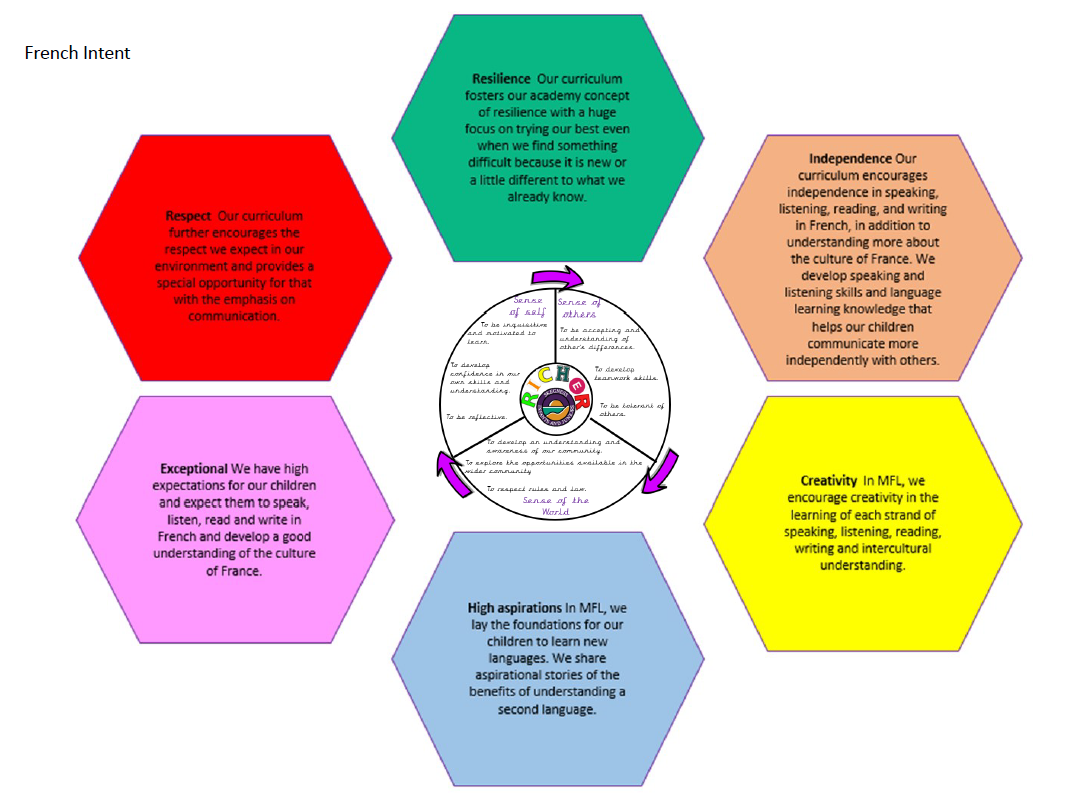Modern Foreign Languages (MFL)

Our MFL Curriculum
The ability to speak other languages opens up new and exciting opportunities on a global level. At Skegness Junior Academy, we aim to deliver language rich lessons that are fun and engaging, that both inspire our learners and lay the foundations for successful language acquisition in Key Stage 3.
At Skegness Junior Academy, we teach French. Our approach to learning a language puts emphasis on a fun, relaxed atmosphere where praise is given to all abilities and children feel confident to push their limits. Our learners grow in confidence in their communication abilities and identify themselves as global citizens.
Guidance from the National Curriculum suggests
The teaching should provide an appropriate balance of spoken and written language and should lay the foundations for further foreign language teaching at key stage 3. It should enable pupils to understand and communicate ideas, facts and feelings in speech and writing, focused on familiar and routine matters, using their knowledge of phonology, grammatical structures and vocabulary. The focus of study in modern languages will be on practical communication.
Pupils should be taught to:
- Listen attentively to spoken language and show understanding by joining in and responding
- Explore the patterns and sounds of language through songs and rhymes and link the spelling, sound and meaning of words
- Engage in conversations; ask and answer questions; express opinions and respond to those of others; seek clarification and help*
- Speak in sentences, using familiar vocabulary, phrases and basic language structures develop accurate pronunciation and intonation so that others understand when they are reading aloud or using familiar words and phrases*
- Present ideas and information orally to a range of audiences*
- Read carefully and show understanding of words, phrases and simple writing
- Appreciate stories, songs, poems and rhymes in the language
- Broaden their vocabulary and develop their ability to understand new words that are introduced into familiar written material, including through using a dictionary
- write phrases from memory, and adapt these to create new sentences, to express ideas clearly
- describe people, places, things and actions orally* and in writing Languages – key stage 2 3
- Understand basic grammar appropriate to the language being studied, including (where relevant): feminine, masculine and neuter forms and the conjugation of high-frequency verbs; key features and patterns of the language; how to apply these, for instance, to build sentences; and how these differ from or are similar to English
Please also visit our Long Term Planning for all year groups in the files section on our main curriculum page.
National Curriculum https://bit.ly/2SzLd4C
